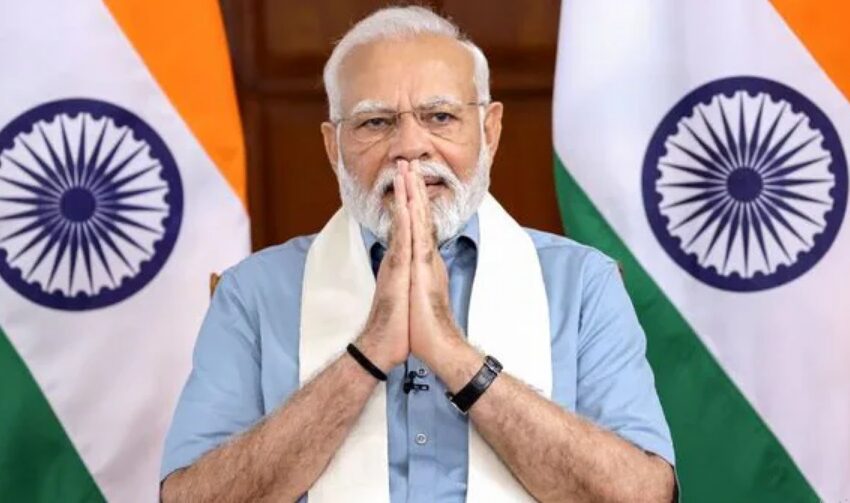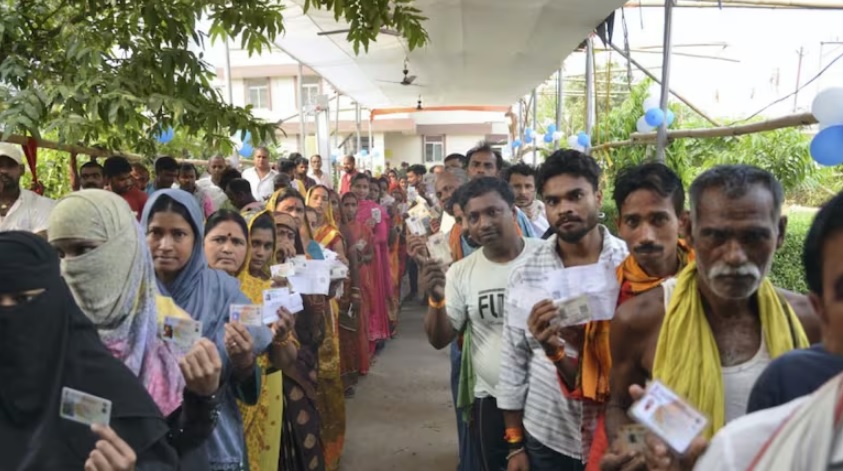
One Nation, One Election: Can Modi Government Secure Enough Votes in Parliament?
The Modi government aims to implement the ‘One Nation, One Election’ proposal, requiring constitutional amendments. While 32 political parties support it, significant opposition exists. It won’t be easy for the government to secure necessary votes in both houses of Parliament.
Prime Minister Narendra Modi-led Union government on Wednesday approved the ‘One Nation, One Election’ proposal aligning polls for both the Lok Sabha and state assemblies.
The report of the high-level committee, headed by former president Ram Nath Kovind, pitching for simultaneous polls was placed before the Union Cabinet which approved it.
“This is an important step towards making our democracy even more vibrant and participative,” Modi said in a post on X.
The committee has recommended rolling out simultaneous polls in two phases – conducting concurrent elections for the Lok Sabha and state Assemblies in the first phase to be followed by synchronised local body polls within a 100-day period in the second phase.
The Kovind panel has recommended amending the last five articles of the Constitution to hold simultaneous polls in the country. This includes amendments to Article 83, which governs the term of the Lok Sabha, and Article 172, which covers the tenure of state assemblies.
Bills to this effect are likely to be introduced in Parliament during the upcoming winter session.
Modi Govt Vs Rest
The Kovind panel had sought opinion from 62 political parties. Overall, 47 political parties submitted their opinion. Of these 32 supported it and 15 opposed it, according to a report in Indian Express.
The 32 parties which supported the move were either Bhartiya Janata Party (BJP) allies in the National Democratic Alliance (NDA), or friendly parties. The NDA partner, the Telugu Desam Party, which did not give its opinion to the panel, has said that it, however, supports the move in principle.
And of the 15 parties who are against simultaneous polls, 5 are opposition parties, outside the NDA, which are in power in states, including the Congress.
The Lok Sabha Scenario

The BJP doesn’t have a majority in Lok Sabha, unlike two previous terms. It will rely on its NDA allies and friendly parties to get the bills passed.
In terms of strength in the Lok Sabha, the parties supporting the ‘One Nation, One Election’ proposal comprise 271 MPs in lower house, including 240 BJP MPs. This is just one short of a 271 simple majority in the Lok Sabha.
The 15 parties that opposed simultaneous polls while submitting its opinion to the panel account for 205 Lok Sabha MPs. This included 203 MPs representing the opposition INDIA bloc. Overall, the INDIA bloc and those parties which did not submit their opinion before the panel, comprise 234 Lok Sabha MPs.
The NDA, including the TDP and other parties who have stood neutral on the simultaneous polls so far, has a Lok Sabha strength of 293 MPs.
The Modi government will, however, need 362 votes (MPs), or two-thirds majority, in the Lok Sabha if it turns out in full strength of 543 to get the bills passed.
Thus the bills can get the two-thirds majority only in the condition of over a 100 MPs abstaining from the voting bringing down the strength of the Lok Sabha.
Clearly, the government needs to get non-NDA and Opposition parties on board to get the the constitutional amendment bills passed in the Lok Sabha.
The Rajya Sabha Numbers
The Modi government is better placed in Rajya Sabha, but the numbers are not enough for getting the bills passed.
The BJP-led NDA has 115 MPs in Rajya Sabha. Then there are also six nominated members taking the NDA numbers to 121 MPs in the Upper House. The INDIA bloc has 85 MPs in Rajya Sabha.
If all the 250 members of the Rajya Sabha are present during the voting, the simple majority would be 125 and two-third majority would be 164 MPs. Currently, there are 234 MPs in the Rajya Sabha.
With his situation, it is not clearly going to be easy for Modi government to pass the Bill to implement the ‘One Nation, One Election’ proposal in the upcoming sessions of the Parliament.


